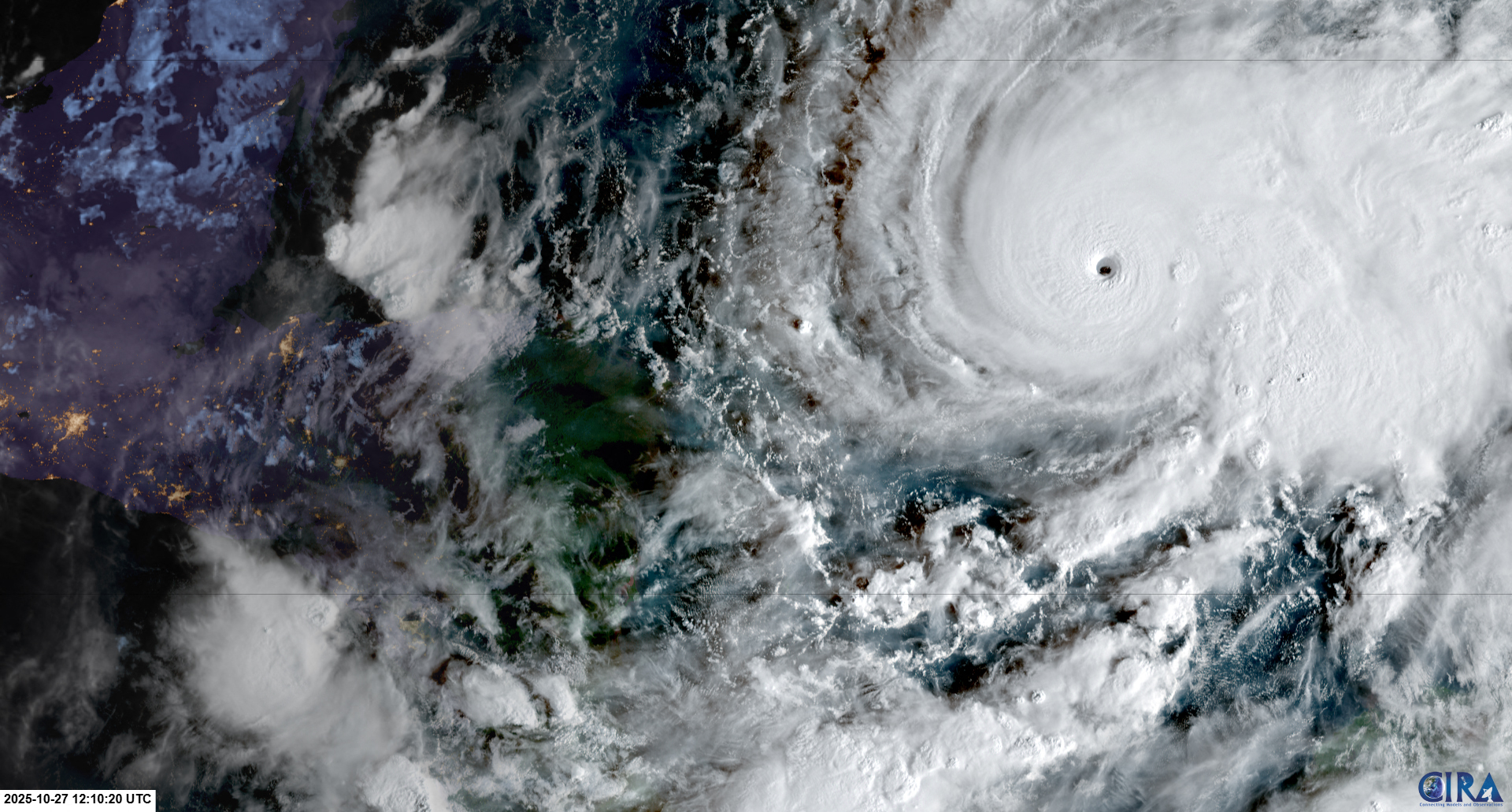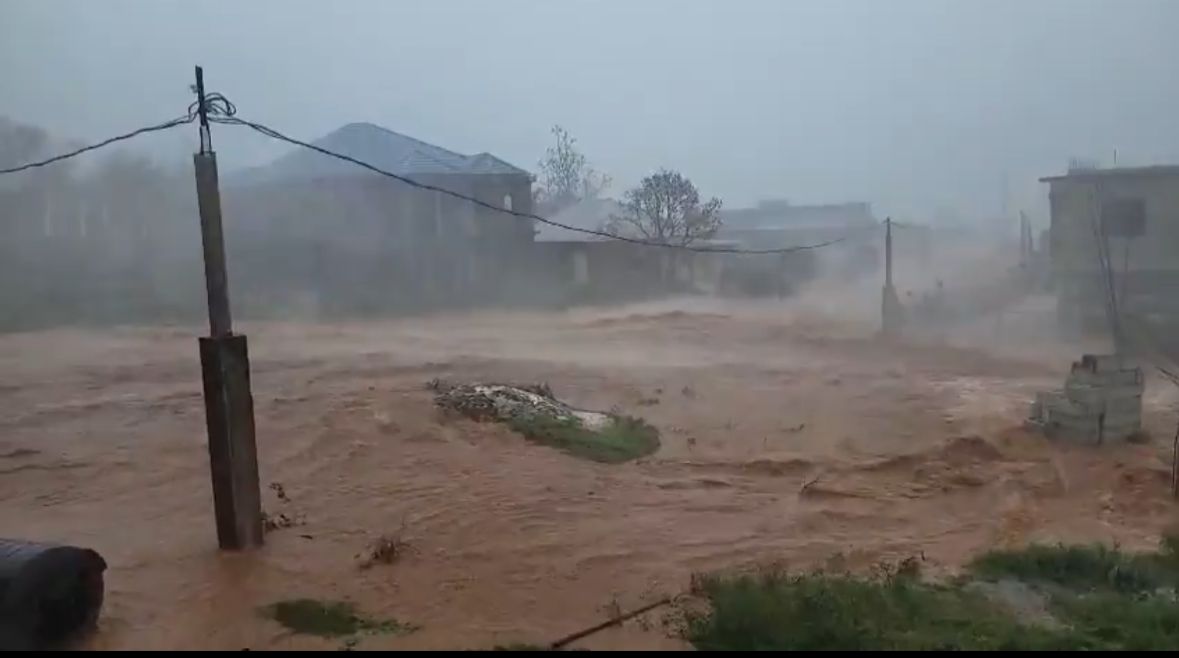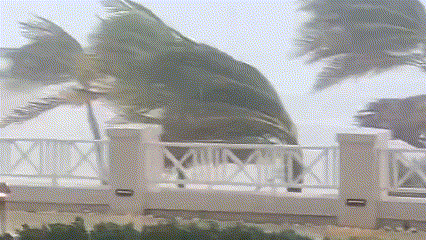Hurricane Melissa: New study reveals that global warming intensified the phenomenon and increased its probability of occurrence

Wednesday dawned with silence and devastation in Jamaica. A day after Hurricane Melissa struck, many families remain cut off, without electricity or phone service, and with their homes underwater. In the town of Black River, in the southwest of the country, where the cyclone made landfall on Tuesday, October 28, as a Category 5 storm, the damage is described by residents as “apocalyptic.”
“I’m okay, but I still haven’t heard from my family because the phones aren’t working,” Daniel Buchanan, a 33-year-old teacher from Black River, told EFE from Kingston, the capital. “Many houses lost their roofs, a historic hospital and a clinic were damaged. Historic sites like the courthouse, Waterloo House—the first place in the world to have electricity—and the parish church were destroyed.”

Satellite image of Hurricane Melissa. Photo: AFP
Authorities confirmed that four people died—three men and one woman—all in Black River, according to Desmond McKenzie, Minister for Community Development and head of disaster response. Prime Minister Andrew Holness declared the entire country a “disaster zone” and warned, after flying over Saint Elizabeth, that “the images of destruction are everywhere.”
Meanwhile, the U.S. National Hurricane Center (NHC) reported that Melissa weakened to a Category 1 hurricane on Wednesday as it moved away from Jamaica and toward the Bahamas. However, forecasters warn that its outer bands could still bring torrential rains and storm surge to the western Caribbean.
An unprecedented hurricane Melissa was not only devastating in human and material terms: according to a recent scientific analysis, it would not have occurred without climate change. The study, 'Climate Change Impact Attribution of Hurricane Melissa', published just a few minutes ago, concludes that global warming was responsible for 79% of the probability of a hurricane of this magnitude occurring, and that such an event is now four times more likely than in the pre-industrial climate.
The IRIS model (Sparks and Toumi, 2024), used for attribution, estimates that the increase in global temperature —which already reaches +1.3°C above pre-industrial levels— has modified the potential intensity (PI) of tropical cyclones, that is, the maximum energy they can reach given atmospheric and oceanic conditions.

Hurricane Melissa in Jamaica. Photo: Social media.
In the Caribbean, the difference in atmospheric pressure (IP) between 2025 and the pre-industrial period is +5 to +6 meters per second, which substantially increases wind speeds at the time of impact. According to the model, Melissa's peak wind speed was 7% higher than it would have been in a world without global warming.
“The event was unlikely without climate change,” the report concludes. In a +2°C scenario, hurricanes could intensify even further, with winds increasing by another 2.1 meters per second, a trend that worries scientists and authorities in island nations.
The analysis also projects the economic impact of these types of storms. By combining the IRIS model's wind fields with economic damage functions adjusted for inflation and population growth, the researchers calculated that 12% of the economic losses caused by Melissa are directly attributable to climate change.

Powerful Hurricane Melissa makes landfall in Jamaica as a Category 5 storm. Photo: Social media
In Jamaica, where the total value of assets is estimated at $74 billion, that percentage equates to billions in additional losses attributable to global warming. In a +2°C scenario, the damage would increase by another 4%, the study warns.
This indicator, called FAL (Fractional Attributable Loss), seeks to quantify the true cost of climate change on the infrastructure and economic life of vulnerable nations. “The damage is already almost total in the impacted areas, so further warming will hardly increase the number of structures destroyed, but it will increase the magnitude of the impact,” the report states.
Black River, a symbol of climate vulnerability The destruction in Black River, home to valuable heritage buildings, illustrates the scale of the catastrophe. Roofs torn off, streets covered in debris, collapsed hospitals, and a population cut off from communication define the landscape of a country facing the emergency with limited resources.
“We are doing everything we can to reach the worst-affected communities,” Minister McKenzie told a press conference. Rescue efforts are progressing slowly due to landslides and flooding, while power remains out across much of the southwest.
Hurricane Melissa leaves behind a twofold lesson: the urgent need to address the immediate humanitarian emergency and the necessity to curb global warming, which amplifies the force of these disasters. Because, according to science, Melissa was not a meteorological coincidence, but a climate warning.
Environment and Health Journalist
eltiempo




